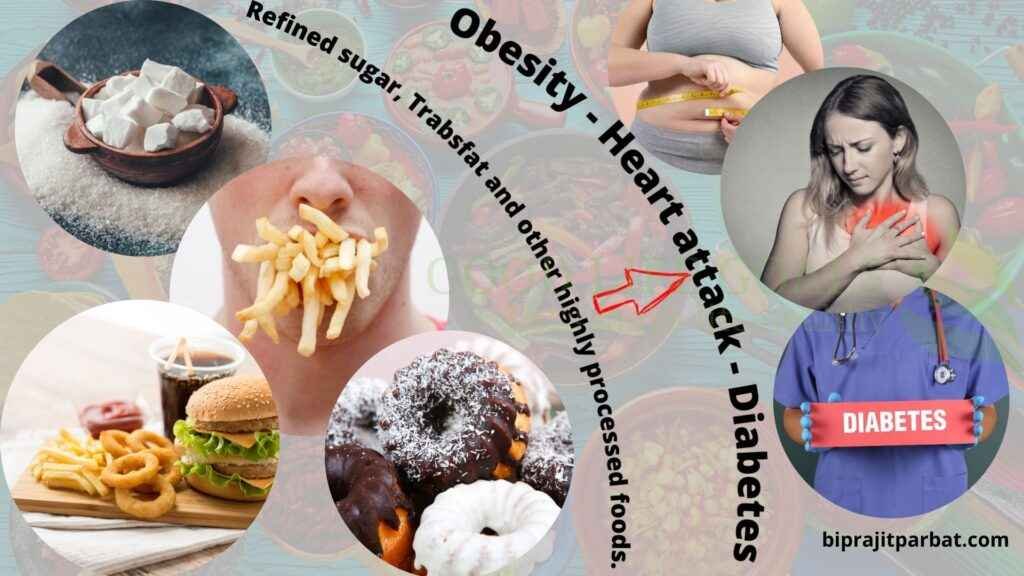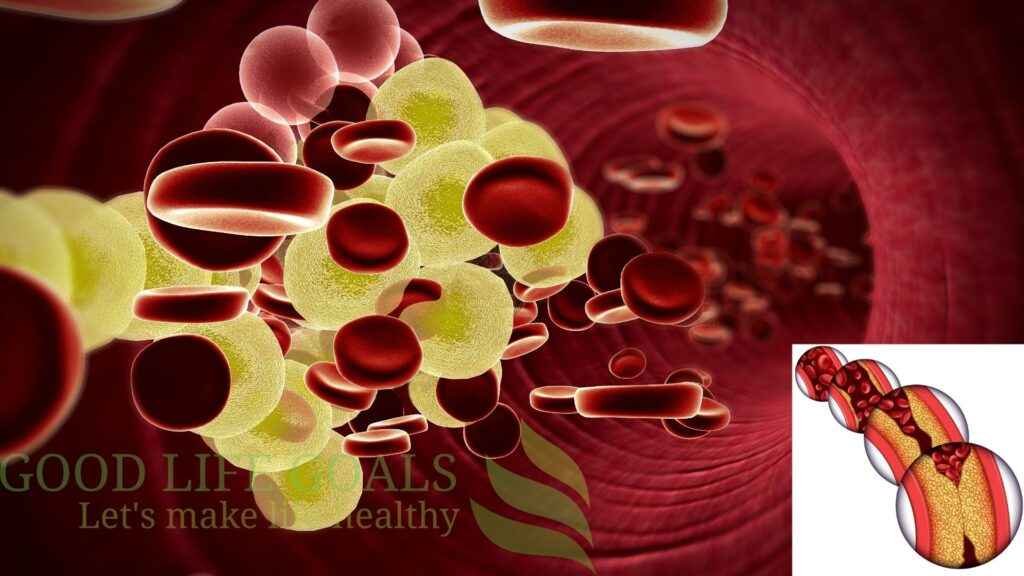Cholesterol is a fat-like substance that the body uses as a building block to produce digestive juices, vitamin D, and hormones that help break fats. Cholesterol moves through the blood on a protein known as lipoproteins. Bad cholesterol can deposit inside the heart arteries and can cause heart attack. Two types of lipoproteins transport cholesterol throughout the body:
Low-density lipoprotein (LDL)
This is referred to as bad cholesterol and has the highest composition of your body’s cholesterol. Elevated levels of LDL increase the risk of getting stroke and heart disease.
High-density lipoprotein (HDL)
This is referred to as good cholesterol. It absorbs cholesterol and transports it back to the liver. The liver then gushes it out of the body. Elevated levels of HDL can reduce the risk of getting a stroke and heart disease.
A certain level of cholesterol is necessary for normal body functioning, but when the levels are in excess, they result in the accumulation of fatty deposits in blood vessels, which leads to their narrowing. The narrowing of blood vessels can cause coronary artery, heart attacks, and other vascular diseases.
Triglycerides are substances present in body fat and fats from the foods you consume. They reveal what you have lately consumed, and cholesterol reveals what you’ve consumed for a long time.
When you consume a fatty meal, it gets absorbed as triglycerides, which increases their levels in your blood for a few days after consuming such a meal. The liver then collects these triglycerides as fats in your adipose tissue and changes some of it into cholesterol. This results in elevated cholesterol levels for a few days to weeks after consuming a fatty meal.
As it is with cholesterol, the body requires a certain level of triglycerides for normal functioning, but increased levels can lead to health problems. Triglycerides compose the third element of cholesterol and act as unused calories stored as fat in the blood. Consuming more calories than you burn may result in the accumulation of triglycerides in the bloodstream, raising your risk of getting heart attacks.
What results in high levels of LDL cholesterol?

The risk factors for bad cholesterol increase in the body include;
- Liver disease
- Alcohol intake
- Genetics
- Diabetes
- Inactive lifestyle
- Obesity
- High-fat intake
- Smoking
Knowing your numbers
Over one-third of Americans have high LDL cholesterol. Hence, it’s vital to visit your physician to know your cholesterol numbers or the amount of cholesterol in your blood and closely control them. Your physician will carry out a blood test and examine other risk factors to identify your numbers.
You’re said to be healthy if your LDL number is 100 and below. Your HDL numbers should be a minimum of 40 or (50 for females) or higher. Healthy triglyceride numbers are 150 and below. The total of your LDL, HDL, and triglycerides should not exceed 200. If your totals are more than that, consult your physician as it might indicate high HDL levels, which is unhealthy.
Attaining a healthy level of cholesterol is achievable. Medication is vital, accompanied by eating a healthy diet with more vegetables and doing regular exercises.
12 Lifestyle tips to reduce cholesterol
High cholesterol raises the chances of getting heart attacks and heart disease. Medication can aid in improving your cholesterol. However, it advisable you try out lifestyle changes to reduce your cholesterol. Here is a list of healthy changes:

Limit saturated fats
Saturated fats are mainly found in full-fat dairy products, and red meat increases your cholesterol counts. Avoiding the intake of saturated fats can help cut down the levels of bad cholesterol.
Avoid trans fats
Trans fats, in some cases, put on food tags as partly hydrogenated vegetable oil, are usually used in store-bought cakes and cookies and kinds of margarine. Trans fats increase cholesterol levels.
Eat food rich in omega-3 fatty acids.
Omega-3 fatty acids do not impact bad cholesterol. However, they are beneficial to the heart’s health, including reducing blood pressure. Such foods include walnuts, flaxseeds, and salmon.
Increase soluble fiber
Soluble fiber can limit the assimilation of cholesterol into the blood. It is present in foods like brussels sprouts, kidney beans, oatmeal, pears, and apples.
Add whey protein
Whey protein, present in dairy products, is associated with health benefits attributed to dairy. Research has revealed that whey protein, taken as a supplement, reduces both bad cholesterol and blood pressure.
Get active
Exercise can reduce cholesterol. Physical activity can help increase good cholesterol. Spare 30 minutes of exercise 5 times per week or intense aerobic exercise for 20 minutes 3 times per week. Integrating exercise even in short intervals numerous times each day can help you to shed weight.
You may consider riding a bicycle or playing your favorite sport. To ensure you keep the momentum, find a training mate or join a training group.
Stop smoking
Stopping smoke raises your HDL cholesterol level. The benefits are significant as in the 20 minutes of stopping, your heart rate and blood pressure recuperate from spike brought about by cigarette smoking. In three months of stopping, lung functioning and blood circulation start to improve. Within one year of stopping, your chance of getting heart disease is half that of a smoker.
Cut weight
Having a few excess pounds causes high cholesterol. If you’re used to sugary drinks, start taking freshwater. If you crave sweet foods, replace them with little or no fat foods like jelly beans. Find ways to integrate more activity into your everyday routine, like using the stairs in place of a lift. Strive to do some of the house chores while standing.
Reduce alcohol intake
Moderate alcohol intake has been associated with higher levels of good cholesterol. However, benefits are not that significant to champion alcohol intake for individuals who do not already drink.
If you take alcohol, do so in moderation. For healthy adults, that translates to one drink every day for women and men aged 65 and above, and up to two drinks every day for men aged 65 and below.
Excessive alcohol intake can result in severe health issues such as strokes, heart failure, and high blood pressure.
Reduce salt intake
You should strive to limit the amount of table salt you eat to the utmost one teaspoon of salt every day. Reducing salt intake will not reduce your cholesterol, but it can reduce the risk of heart diseases by lowering your blood pressure.
Eat a lot of vegetables and fruits.
Diets rich in vegetables and fruits can improve cholesterol-lowering compounds in your diet. These compounds, known as sterols or plant stanols, act like soluble fibre.
Conclusion –
Take charge of your food and food habits. Take charge of your life style. Manage your emotions and your stress for high performance and creativity, thus reduce your stress hormones. Increase the amount of good cholesterol (HDL) and reduce the amount of bad cholesterol (LDL). Win over obesity, diabetes, cholesterol issues and heart diseases.





